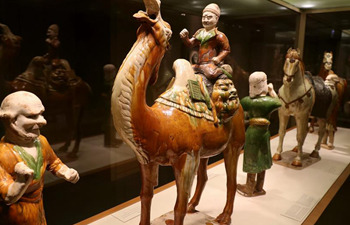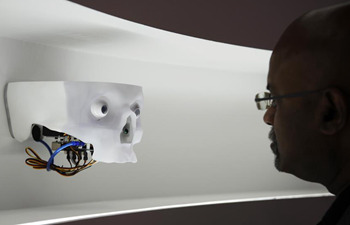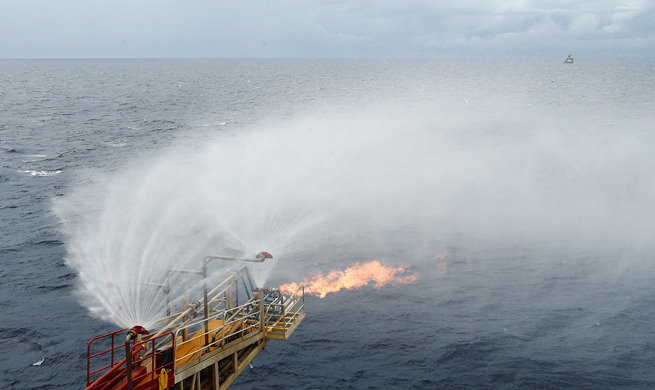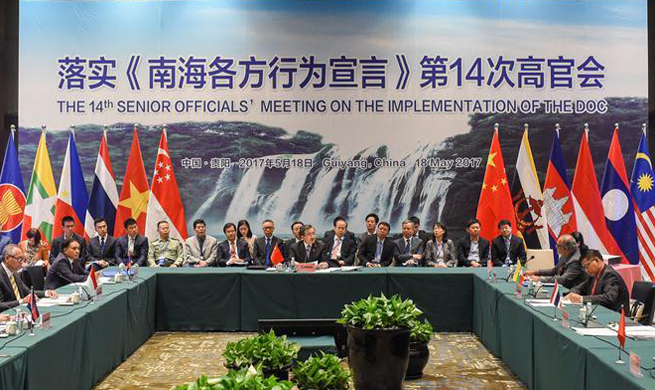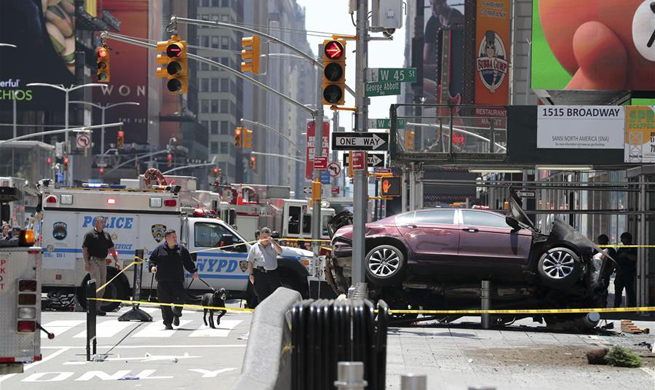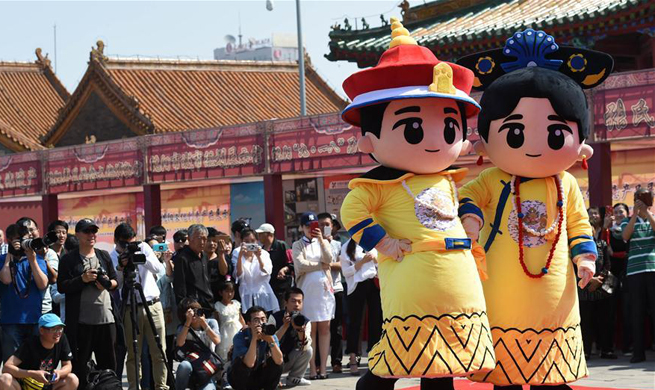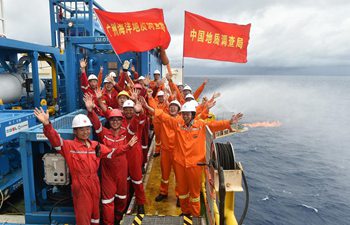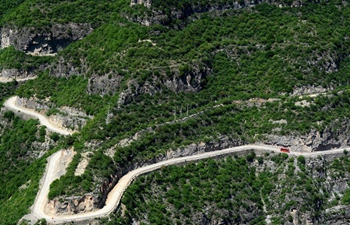by Xia Lin, Chen Weihua
BRASILIA, May 18 (Xinhua) -- Brazilian President Michel Temer said on Thursday he wouldn't resign, denying that he authorized paying hush money to a jailed politician to buy his silence.
The Supreme Court has started to probe the allegations, triggering the latest ripples in Brazil's long-hauling anti-corruption campaign.
The unprecedented fight is widely deemed as a difficult test of the country's political, economic and ethical wisdom before it would be able to embrace a new cycle of prosperity.
Eight days ago, former President Luiz Inacio Lula da Silva became the highest-profile defendant in the sprawling graft probe known as "Operation Car Wash," when he received a five-hour interrogation at the Federal Court in the southern city of Curitiba.
He refuted all the five charges. Defense arguments in his trial are scheduled to close on June 20. His lawyers plan to lodge a new complaint with the United Nations' Committee on Human Rights of "politically motivated judicial persecution."
Operation Car Wash has been greatly expanded since it began three years ago and now implicates several state-run companies. Nearly 100 prominent business people and politicians have been convicted, while scores of sitting federal congressmen as well as one-third of Temer's cabinet are being probed.
Many political groups are involved and almost all the trades get tainted in the corruption cases, said Evandro Carvalho, international law professor at the independent think tank Fundacao Getulio Vargas.
"Graft is always there, but ever more rampant in recent years in Brazil," said Carvalho.
Meanwhile, the Internet helps spread the information faster, enabling the people to gain overall understanding of such crimes among high-level officials and tycoons, he added.
Demonstrations have been more frequent, not only to protest corruption, but also demand jobs and bread in the current economic difficulties, said Carvalho.
"When the world economy runs well and social capital keeps flowing, grafts like embezzlement, bribery and money laundry tend to be neglected. However, when domestic or global (economic) crisis occurs, loss of state assets draws special attention, corruption is put in limelight, and capital legitimacy is widely doubted," said Carvalho.
Another familiar face among the downfalls is the former president of Brazil's Chamber of Deputies Eduardo Cunha, who was sentenced to 15 years and 4 months in prison in March 2017 for "corruption, money laundering and tax evasion."
Cunha, 58, served as the House chief from February 2015 until July 2016.
He reportedly played a key role in the impeachment in May 2016 of former President Dilma Rousseff, who belongs to the leftist Workers' Party together with Lula.
"Brazil's anti-graft campaign has two sides of a coin. It has endangered the national harmony in economy and society, which all of us have realized," Carvalho told Xinhua.
On the other side, he said, the society needs to be prepared for the fact that corruption can't be ironed out at one punch.
"What we have to do is to promote our awareness against corruption and try our best to minimize it. Corruption is a global tumor, with no country exempt. What should be studied is how a country or society can become firm and powerful enough to beat it," he added.
As a positive sign, construction company Odebrecht lately said publicly that it had fired those involved in past bribery and started offering anti-corruption courses to its staffers.




